Labor
In the late l930’s I sat in on a course of education for trade unionists. That these workers had a desire to learn was evident by their enrollment in a class held in the evenings, after they had done a day’s work. That the teacher knew his subject was manifest from the brilliance of his lecture. That the combination of students’ desire and teacher’s grasp of the material did not result in learning was obvious from the fact that before the hour was over, several members of the class were asleep; it was apparent, too, from the decline in enrollment—the next class was attended by only half the students, and the third time the class met, less than a quarter who had signed up were in attendance. | more…
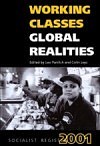
Socialist Register 2001 examines the challenges faced by workers and the labor movement under global capitalism in the new century. This collection of twenty timely and original essays lay the groundwork for a much-needed revival of class analysis. A broad range of working-class issues are addressed including knowledge work and the “cybertariat” in the new economy, feminism and unions, migrant labor, peasant struggles, internationalism, and the impact of unstable, casual, and contingent employment. Other essays examine critically important regional experiences in India, Iran, Russia, Brazil, Southern Africa, and East Asia, as well as Europe and North America. Contributors to this volume reveal new and exciting possibilities for change that transcend the limits of old forms of class organization and politics. | more…
Nelson Lichtenstein, The Most Dangerous Man in Detroit: Walter Reuther and the Fate of American Labor (New York: and Chicago: Basic Books, 1995), 575 pp., $35.00, cloth.
A New York Times obituary for Sophie Reuther on February 23, 1996, declared her husband, Victor, a co-founder of the United Auto Workers. So now the myth that Walter Reuther founded the UAW is extended to include his brother. Unfortunately, the new biography of Walter Reuther by Nelson Lichtenstein will do very little to squelch the myth; this despite the fact that the book documents Reuther’s career, warts and all. | more…
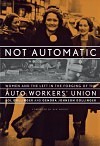
This story of the birth and infancy of the United Auto Workers, told by two participants, shows how the gains workers made were neither easy nor inevitable—not automatic—but required strategic and tactical sophistication as well as concerted action. | more…
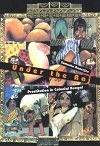
Under the Raj explores the world of the prostitute, seeking to understand the culture of the trade and its impact on society, in the changing reality of nineteenth century Bengal. Sumanta Banerjee outlines the class structure that emerged within the profession, examines popular perceptions of prostitution and analyzes the complex relationship between the newly educated Bengali bhadralok society and the prostitute community. Banerjee gives voice to the prostitutes themselves, from which we hear their songs, letters, and writings, collected and reproduced from both oral tradition and printed sources. | more…
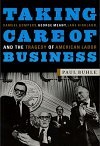
The first comprehensive history of American labor leadership in the twentieth century, this is a tale of tremendous hope and appalling treachery, stunning accomplishment and dramatic defeat. | more…
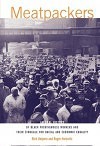
Available for the first time in paperback, Meatpackers provides an important window into race and racism in the American workplace. In their own words, male and female packinghouse workers in the Midwest—mostly African-American—talk of their experiences on the shop floor and picket lines. They tell of their fight between the 1930s and 1960s for economic advancement and racial equality. In cities like Chicago, Kansas City, Omaha, Fort Worth, and Waterloo, Iowa, meatpackers built a union that would defend their interests as workers—and their civil rights. | more…

Big changes in the global economy and world politics have put new questions on the table for labor movements around the world. Can workers regain the initiative against the tidal wave of corporate downsizing and government cutbacks? Can unions revive their ranks and reignite the public imagination? Is labor rising from the ashes? | more…

In my opinion, American capitalism no longer has any use for, let’s say, 40 percent of the population. These are the descendants of folks who were brought over here in one way or another during the period of capital accumulation. They’re now superfluous human beings. | more…
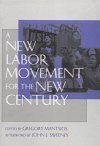
“Labor has finally awakened from a long, deep sleep.” So declared one observer after the victory of John J. Sweeney’s “New Voice” slate in the 1995 contest for leadership of the U.S. trade union federation, the AFL-CIO. Sweeney’s team promised to make organizing its top priority, and new stirrings in labor have brought unprecedented media attention. With a surprisingly popular and victorious nationwide strike at United Parcel Service in 1997, hopes have risen for a new labor movement. | more…
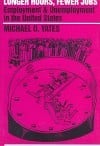
Millions unemployed… fewer people working harder for less pay and shrinking benefits… the assets of the wealthiest one percent of the population growing as the population below the poverty line swells… the next generation facing an even more bitter future… Why? Most working people cannot answer this question. In this user-friendly book, Michael Yates explains how employment and unemployment are inextricably connected in an economic system where employers are driven by the search for profits. | more…
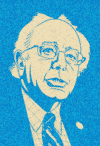
That there are good and honorable people who believe that the Democratic Party can be turned around. I don’t. Our major task is to change the entire nature of political discussion in the country. In my view that’s just not going to happen within the Democratic Party. | more…









